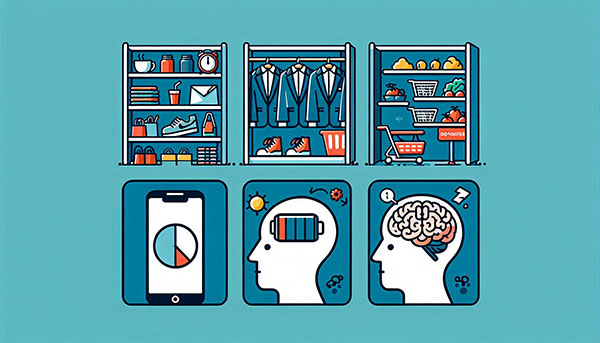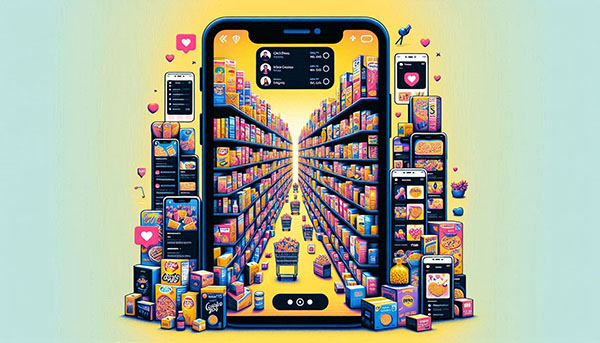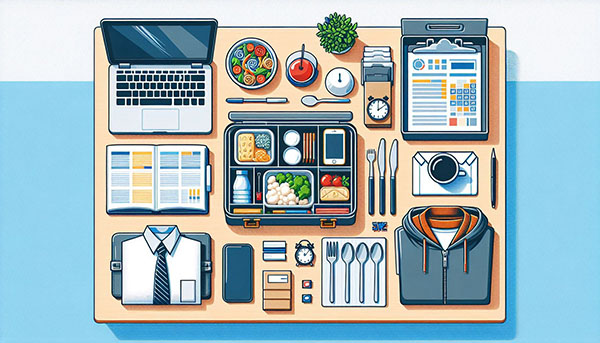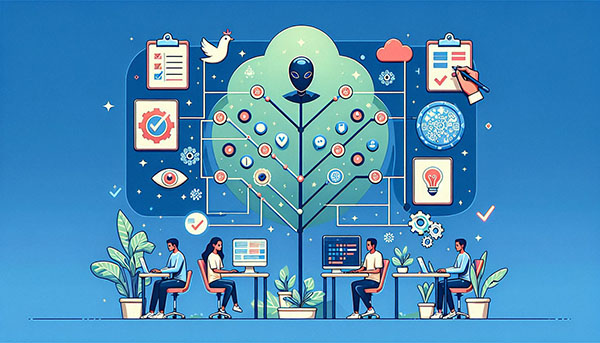By: John S. Morlu II, CPA
The Overwhelming Burden of Choice: Why Decision Fatigue Rules Our Lives
Did you know the average person makes around 35,000 decisions every single day? That’s enough mental juggling to make anyone’s brain feel like it just ran a marathon. And while some of these decisions—like whether to hit snooze for the third time—may seem harmless, others, such as choosing a career path or navigating a tricky workplace dilemma, can feel monumental. Even tiny decisions add up: studies show that we make about 226 choices a day just about food!
Modern life is like a never-ending buffet of choices, from hundreds of cereal brands to infinite streaming options that somehow still leave us saying, “There’s nothing to watch.” Add the relentless pinging of notifications and the pressure to optimize every aspect of our lives—career, relationships, health, and hobbies—and it’s no wonder we’re collectively exhausted. This exhaustion has a name: decision fatigue.
And here’s the twist—it doesn’t just impact ordinary folks deciding between sushi or pizza. Decision fatigue affects everyone, including world leaders trying to tackle global crises. In fact, it’s a big reason why some people willingly embrace systems—be it governments, corporations, or even their workplaces—that take decisions off their plate. When someone else is calling the shots, life suddenly feels less overwhelming. It’s like hitting the “easy” button, but on a societal scale.
And here’s where it gets fascinating: even in places that champion freedom and autonomy, many people are surprisingly okay with trading those ideals for the simplicity and comfort of having fewer decisions to make. It’s no coincidence that authoritarian leaders and centralized systems often emerge as beacons of stability during turbulent times. They promise fewer decisions, fewer headaches, and—at least on the surface—a smoother path forward.
But is this really the solution we need, or just a temporary Band-Aid for a world drowning in options? To unravel this mystery, let’s dive deeper into the psychology of decision fatigue, uncover some surprising facts, and explore why handing over control might feel like the ultimate life hack—until it isn’t.
Fun Facts About Decision Fatigue
Before we dive further, here are some mind-blowing nuggets about the impact of decision-making:
- The “Obama Uniform”: Former U.S. President Barack Obama famously limited his wardrobe to gray or blue suits to reduce decision fatigue. “I don’t want to make decisions about what I’m eating or wearing,” he explained, reserving his mental energy for more critical choices.
- Supermarket Overload: A famous study showed that people presented with 24 types of jam were far less likely to make a purchase than those presented with just six. Why? Too many options paralyzed them.
- Your Brain on Sugar: Decision-making depletes glucose levels in the brain. That’s why judges are more likely to grant parole after lunch (when their glucose is replenished) than late in the day.
- Netflix Indecision: The average viewer spends 18 minutes deciding what to watch—a tiny but telling symptom of our overloaded decision-making circuits.
The Paradox of Choice in Modern Life
Freedom of choice is often considered a hallmark of progress. But more choices don’t always lead to more happiness. In fact, psychologists refer to this phenomenon as the paradox of choice: the more options we have, the harder it becomes to decide, and the less satisfied we are with our final choice.
Consider these scenarios:
- Shopping Madness: Walking into a grocery store with an aisle dedicated solely to cereal can feel like an adventure—or a nightmare. Hundreds of options leave many shoppers wondering, “Did I pick the right one?“
- Dating Apps: Endless swiping through profiles may sound liberating, but studies show it often leads to decision fatigue, dissatisfaction, and the dreaded “What if there’s someone better?” syndrome.
- Workplace Choices: Employees are increasingly tasked with juggling decisions about workflows, tools, and priorities. While autonomy is empowering, too much of it can feel overwhelming.
This overload leaves many of us yearning for simplicity, predictability, and structure—qualities authoritarian systems often promise.
Why Authoritarian Leadership Feels Like a Vacation From Choices
1. A Brain on Autopilot When someone else makes the decisions, it’s like switching your brain to “cruise control.” Authoritarian leaders and systems provide clear rules, leaving little room for ambiguity. For example:
- In authoritarian governments, citizens are often told where to live, work, and how to behave. This may sound restrictive, but it eliminates the stress of navigating complex societal choices.
- In hierarchical workplaces, employees with micromanaging bosses may complain—but secretly enjoy not having to make decisions themselves.
2. Efficiency, At Last Democratic systems and participatory workplaces can feel agonizingly slow, with endless debates and compromises. Authoritarian systems cut through this red tape, delivering fast, decisive action. For individuals overwhelmed by bureaucratic inefficiency, this can feel like a breath of fresh air.
3. The Comfort of Certainty Uncertainty is stressful. During times of crisis—wars, pandemics, or economic recessions—people naturally gravitate toward strong, decisive leaders. The promise of stability and direction often outweighs the cost of lost freedoms.
Decision Fatigue in Business: Why People Love Simplification
The same psychology applies to business and consumer behavior:
- Subscription Services: Companies like HelloFresh and Stitch Fix thrive because they remove the burden of decision-making. “Here’s your meal plan for the week” or “These clothes are perfect for you” feels like a lifesaver when your mental bandwidth is stretched thin.
- Workplace Control: Employees often prefer clear instructions over ambiguous autonomy. While some thrive on freedom, many would rather be told, “Do this and don’t worry about the rest.”
The Cost of Outsourcing Decisions
While relinquishing decision-making can feel like a relief, it comes with long-term risks:
- Loss of Critical Thinking: Constantly deferring decisions can erode problem-solving skills and reduce people’s ability to think independently.
- Abuse of Power: Systems that centralize decision-making are vulnerable to corruption and misuse.
- Stagnation: Without diverse perspectives, organizations and governments risk falling into patterns of inefficiency and a lack of innovation.
Moving Forward: A Healthier Approach to Decisions
Decision fatigue isn’t going away, but there are ways to manage it without giving up autonomy:
- Simplify Where It Matters: Use tools like decision trees or pre-set options to streamline daily choices.
- Delegate Wisely: Share decision-making responsibilities with trusted team members or systems, but retain oversight.
- Protect Mental Energy: Prioritize decisions that matter and avoid wasting energy on trivial ones (e.g., pick an outfit the night before).
- Leverage Technology: Decision-support tools and AI can help reduce cognitive load while maintaining personal agency.
Final Thoughts
Sure, handing over control feels like sinking into a comfy couch after a long day—no decisions, no stress, just blissful autopilot. But here’s the catch: while it’s tempting to let someone else take the wheel, you might end up on a road you never wanted to travel. The long-term cost of giving up your power? Lost autonomy, weakened critical thinking, and a one-way ticket to Stagnation City.
Instead of outsourcing your life, why not Marie Kondo your decision-making? Simplify what doesn’t spark joy, delegate where you can, and save your brainpower for the big stuff—the decisions that make your life uniquely yours. After all, the goal isn’t just to make fewer decisions. It’s to make kick-ass, life-enhancing, no-regrets decisions that lead to a future you’re proud of. So grab the wheel, set your GPS to “freedom,” and start driving your own destiny—pit stops and all! 🚗✨
Author: John S. Morlu II, CPA
John S. Morlu II, CPA, is the CEO and Chief Strategist of JS Morlu, a globally acclaimed public accounting and management consulting powerhouse. With his visionary leadership, JS Morlu has redefined industries, pioneering cutting-edge technologies across B2B, B2C, P2P, and B2G landscapes.
The firm’s groundbreaking innovations include:
• ReckSoft (www.ReckSoft.com): AI-driven reconciliation software revolutionizing financial accuracy and efficiency.
• FinovatePro (www.FinovatePro.com): Advanced cloud accounting solutions empowering businesses to thrive in the digital age.
• Fixaars (www.fixaars.com): A global handyman platform reshaping service delivery and setting new benchmarks in convenience and reliability.
Under his strategic vision, JS Morlu continues to set the gold standard for technological excellence, efficiency, and transformative solutions.
JS Morlu LLC is a top-tier accounting firm based in Woodbridge, Virginia, with a team of highly experienced and qualified CPAs and business advisors. We are dedicated to providing comprehensive accounting, tax, and business advisory services to clients throughout the Washington, D.C. Metro Area and the surrounding regions. With over a decade of experience, we have cultivated a deep understanding of our clients’ needs and aspirations. We recognize that our clients seek more than just value-added accounting services; they seek a trusted partner who can guide them towards achieving their business goals and personal financial well-being.
Talk to us || What our clients says about us










